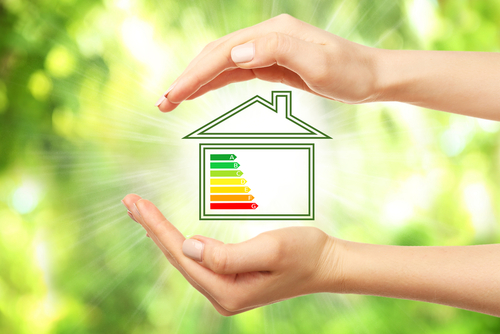The U.S. Department of Energy (DOE) has awarded $82.6 million in funding to 44 projects that will lower Americans’ energy bills and help meet President Joe Biden’s goal of net-zero carbon emissions by 2050 by investing in new energy-efficient building technologies, construction practices, and the U.S. buildings-sector workforce.

“Americans spend about $100 billion every year on wasted energy from buildings, heating and cooling units, and more—increasing energy bills and needless emissions that dirty our air and worsen the climate crisis,” says Secretary of Energy Jennifer M. Granholm. “By pursuing advancements that make both existing and newly constructed buildings more energy efficient, we can save consumers money and reduce the climate impacts of the places we live and work.”
According to the DOE, residential and commercial buildings currently account for more than one-third of the climate-altering carbon pollution America releases each year, and consume 40% of the nation’s energy and 75% of its electricity. The agency says pursuing energy-efficiency innovations is one of the most cost-effective means to keep the growth of energy consumption from spiraling upwards as society’s energy needs grow.
The 44 projects across 20 states will improve building energy efficiency through innovations in thermal energy storage, building envelopes, lighting, heating, ventilation, air conditioning, refrigeration, and water heating—as well as by bolstering America’s energy-efficiency workforce with trainings, educational programs, and other technical support.
Among the 44 projects are:
- North Dakota State University (Fargo, North Dakota) will develop a novel absorption material that will efficiently store thermal energy;
- Baryon Inc. (Wilmington, Delaware) will develop an innovative air-conditioning system based on a new method of evaporative cooling combined with dehumidification that can consume 50% to 85% less energy than traditional air conditioning systems;
- Emerson Commercial and Residential Solutions (Sidney, Ohio) will design, fabricate, and validate a highly efficient refrigerated display case for use in supermarkets;
- New Jersey Institute of Technology (Newark, New Jersey) will design, prototype, install, test, and evaluate a high-performance residential wall retrofit that can achieve estimated heating and cooling energy savings of 30% or more; and
- The Southeast Energy Efficiency Alliance (Atlanta, Georgia) will develop training resources on electrified building systems such as electric heat pumps, heat pump water heaters, electric vehicle charging systems, and battery storage systems. These resources will help members of the workforce learn how to educate consumers on the benefits of these technologies.
For more information and the full list of selected projects, click here.
